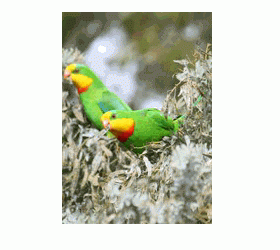
Recent monitoring has recorded significant rabbit numbers in Mt Ainslie and Mt Majura Nature Reserve, a remnant Yellow Box Red Gum Grassy Woodland (an endangered ecological community), and key habitat for many threatened species.
The first stage of the program, ground baiting, will commence on 16 March 2020 with carrot placed inside cages specially designed for rabbits and placed within the vicinity of large warren complexes. These cages have been designed to minimise access by larger native mammals, birds and domestic animals.ACT Parks and Conservation Service will be implementing an integrated rabbit control over the next few months including ground baiting, warren ripping and fumigation, in line with best practise management guidelines.Rabbits cause severe damage to the natural environment and threaten our biodiversity by competing with native wildlife, damaging vegetation and degrading the land. They ring-bark native trees and shrubs and prevent regeneration by eating seeds and seedlings.
If the rabbits respond well to free-feeds (feeding carrots without poison), carrots treated with Pindone poison will be laid at dusk and any leftover removed early the following morning. This will continue for a number of days depending on the success of each bait station.
Whilst domestic animals are at risk of poisoning from the Pindone treated carrot, we have made every effort to ensure this does not occur by creating targeted bait cages, placing bait stations well away from urban areas, where domestic pets should be excluded or restrained. Local vets also have an antidote readily available.
Please ensure that dogs are kept on lead at all times when in Mount Ainslie and Mount Majura Nature Reserves, and that cats are kept out of the reserves.
Please note that as part of this program we are researching effects of secondary pindone poisoning on predator and scavenger species. If you find any deceased predator or scavenger species (for example foxes, large reptiles, ravens or other birds of prey), please record the exact location of the animal and report the animal to the Canberra Nature Park Rangers on 6207 2113. If it possible to collect the animal, please record the location of the animal, place the animal into two plastic bags and place in a freezer. Rangers can then be contacted to arrange pick up.
For further information, please contact Access Canberra on 13 22 81 or accesscanberra.act.gov.au
Kind Regards,
Canberra Nature Park Rangers.


